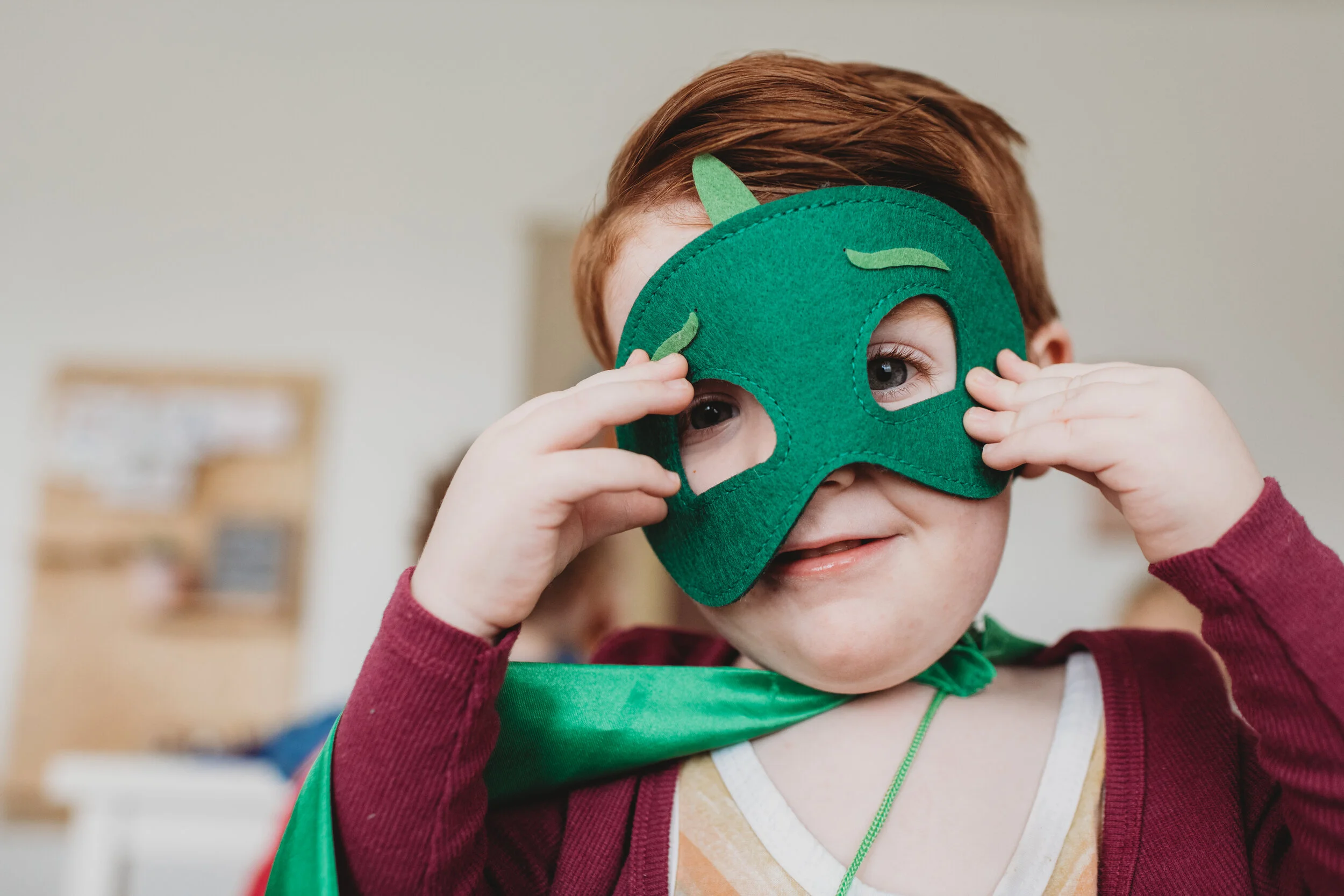Drama Therapy uses storytelling and make-believe to help children work through feelings
This is the second blog post in my series on drama therapy. Click here to read part one!
Drama therapy is a form of mental healthcare that uses theater techniques to improve the mind-body connection, encourage emotional growth, and provide symptom relief. When drama therapy is used with kids, storytelling, imaginative play, props such as dolls and puppets, as well as theater techniques like improvisation and performance help children to explore their feelings, connect with others, and problem-solve difficult situations.
Drama therapy can be used in both group and individual therapy sessions. Because it helps participants express themselves nonverbally, it works well for people of all ages and abilities, as well as across cultures or when there may be a language barrier within a group. Today, I’d like to talk about how Drama Therapy can be an especially powerful tool for kids in counseling.
Drama Therapy for Children: No Theater Experience Required
Parents might wonder if their child has to have a flair for the dramatic in order to benefit from Drama therapy. Is this a form of counseling just for "theater kids?" Not at all! Kids who are natural performers or have theater experience are a great fit for a drama therapy group, since they’ll be building on their strengths and connecting with other children who may share their interests.
However, I believe that more introverted kids can benefit just as much—if not more—from therapy that uses theater techniques. There’s a lot more to Drama therapy than just performing on stage, and the skills can be modified to meet any child’s needs and comfort level with performing.
Why Drama Therapy is a Natural Fit for Children
If you have a young child in your life, you have probably seen her pretend to be a superhero, or act out scenes from a favorite movie or story using her friends or toys. Children are natural storytellers, and they love to take on the roles of their favorite characters and heroes. This type of play is the foundation of drama therapy!
Kids are naturally inclined to work out their feelings and learn through play. Child therapists like to say that "play is the child's language,” and research has shown that imaginative, make-believe play is a critical part of healthy child development. Even when children are exploring pretend scenarios in play, they are learning important lessons about real life. Drama therapy builds on this natural capacity for imaginative play to help children work through feelings and events that might be too big to describe with words.
What Kinds of Children Benefit from Drama Therapy?
Drama Therapy has been used to help children with a wide variety of problems. Some of these include:
Children having problems with relationships, or who need to practice social skills
Children on the autism spectrum
Children who are acting out behaviorally
Children who are recovering from a serious injury or illness
Children who have experienced trauma or loss
In general, drama therapy can be an asset for any child who has a hard time verbalizing his feelings. Even bright and talkative kids often have a hard time articulating deep, underlying worries or emotions. Even if they can verbalize them, many kids are hesitant to share these deep-down feelings out of a fear that they may become too overwhelming for themselves or others to handle. For these kids, traditional talk therapy alone may not be the most helpful option. Drama Therapy can help children begin to access and explore their emotions in a less threatening, more playful environment.
Benefits of Drama Therapy for Kids
Drama therapy has some unique benefits for children when compared to other forms of therapy. Here are a few of the common positive outcomes for children who participate in drama therapy:
Reduced Social Isolation: Drama Therapy is a community-building activity that helps children build empathy and social skills. Young people have the opportunity to walk in another person’s shoes and may discover that their peers not only understand their worries and problems, but share them.
Increased Self-esteem: Children can experience the confidence that comes from learning a new skill, whether performing for a full house, a group of peers, or an audience of one. Theater performance celebrates the uniqueness of each individual and can help young people to identify their own strengths.
Practicing New Skills: Roleplaying allows kids to try out new coping and social skills in a safe, low-risk environment. The role-player is free to experiment and make mistakes, and discover how different approaches to a problem have different outcomes.
Creative Problem-Solving: Drama therapy increases children’s creativity and spontaneity, encouraging young people to trust their instincts and come up with new, out-of-the-box ways to approach life's challenges.
Improved Emotional Expression: Drama therapy is a great way to more deeply explore feelings that may not be accessible with verbal therapy alone. It can also be a safe way to explore feelings that are too big or scary to talk about directly.
Learn More about Drama Therapy for Children
Drama Therapists are increasingly employed in settings that work with children, such as schools, early intervention programs, recreational facilities, and hospitals. Drama therapy for kids can also sometimes be found in therapy practices specializing in children, such as my own.
To find out more about how Drama therapy can benefit young children, check out the North American Drama Therapy Association’s website here.
If you’re in the Davidson area, I’m a Registered Drama Therapist and would be happy to talk more with you about this unique form of child therapy. You can contact me here.


